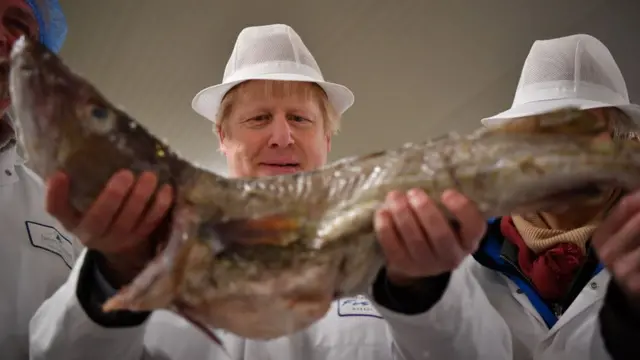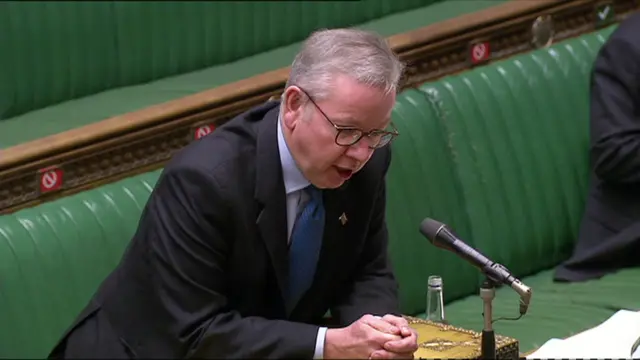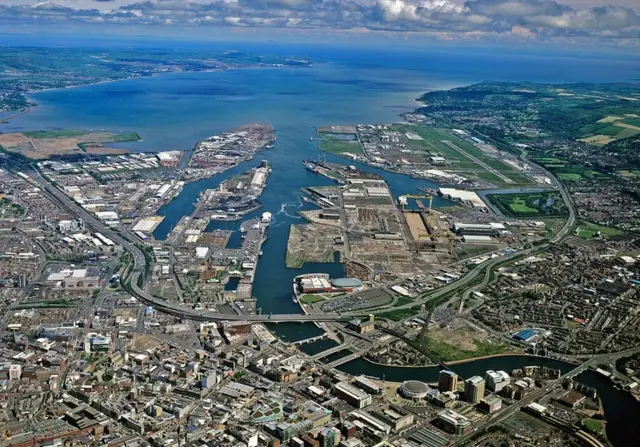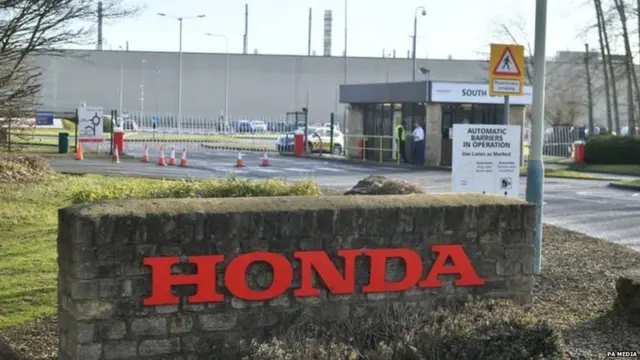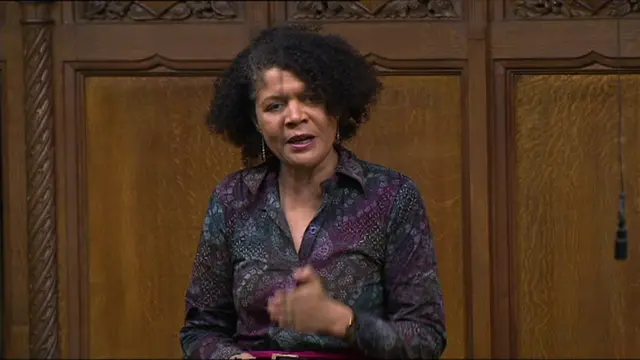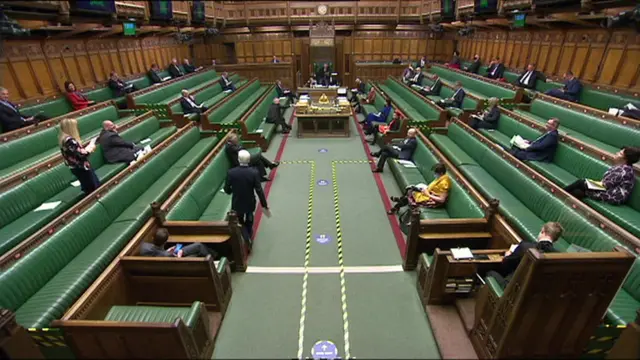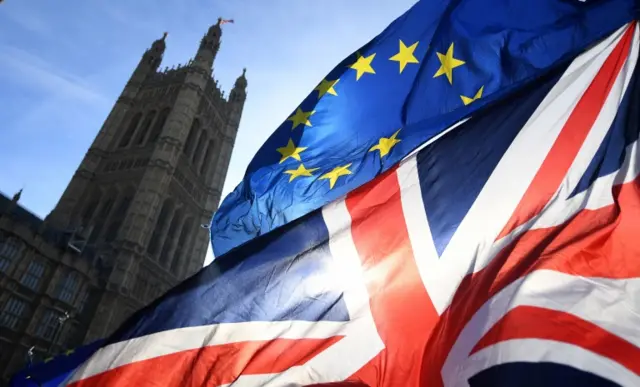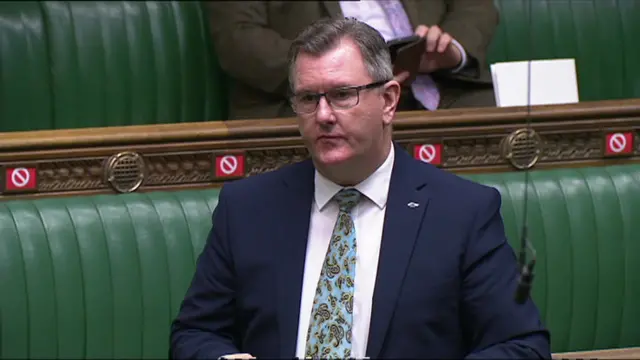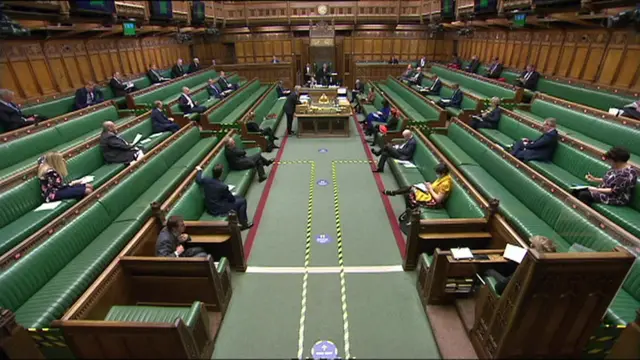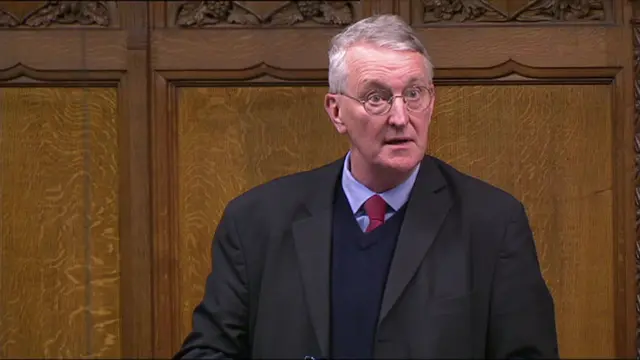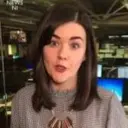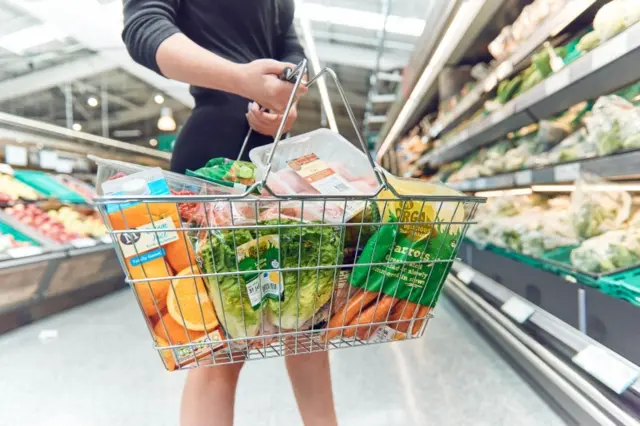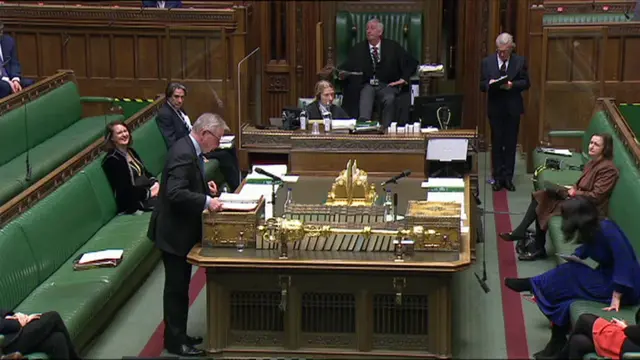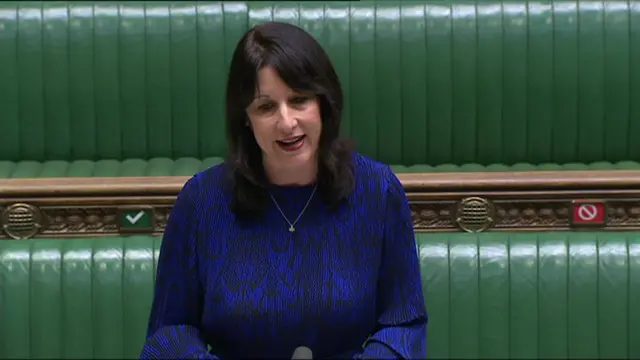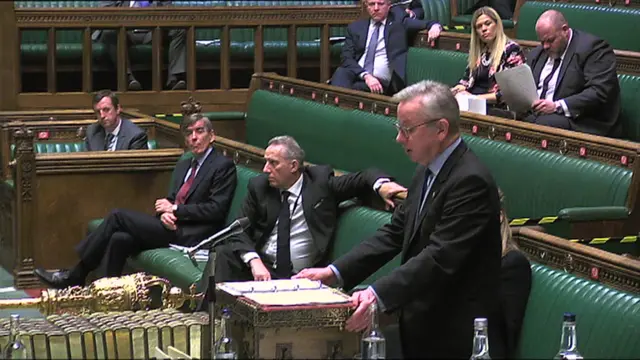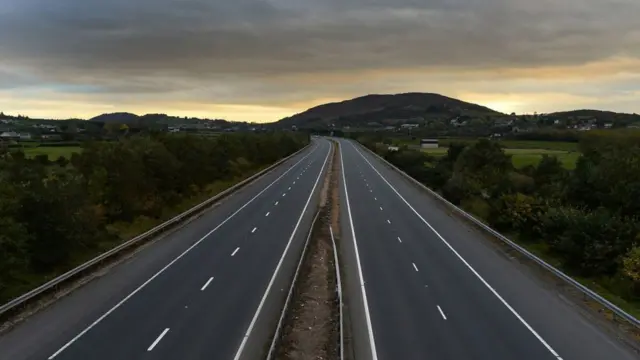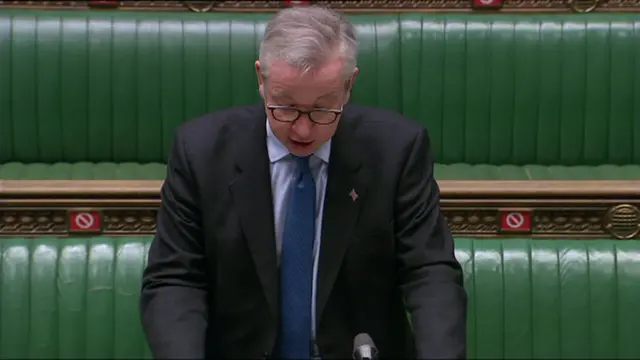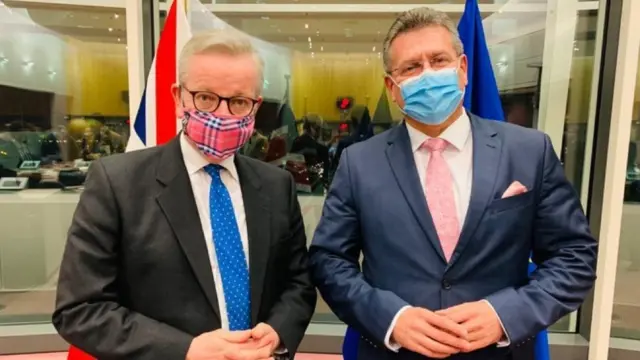Goodbyepublished at 14:50 GMT 9 December 2020
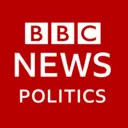 BBC Politics
BBC Politics
That's all from us for now.
We'll pop up again later this evening to take you through any developments from the PM's dinner in Brussels with EU chief Ursula von der Leyen, which is due to start around 19:00 GMT.
We don't know what the outcome of their talks will be tonight, but we do know they have the same 'menu' in front of them as they did when the spoke on the telephone earlier this week.
And so far they've found their differences over a Brexit deal hard to digest. (Ok, we'll stop with the terrible food puns now).
And as our political editor Laura Kuenssberg explains here it is certainly "more than a standard diplomatic dinner".
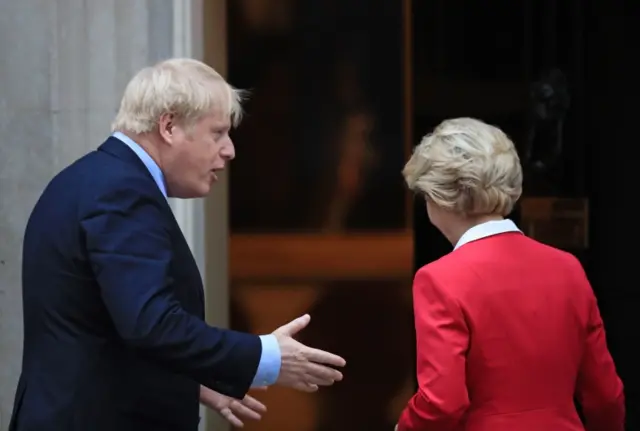 Image source, PA Media
Image source, PA MediaBoris Johnson and Ursula von der Leyen outside No 10 in January
Our team with you this afternoon were Kate Whannel, Katie Wright and Richard Morris, with Johanna Howitt in the editor's chair.
Thanks for following along with us. We hope you'll come back to join us later.

